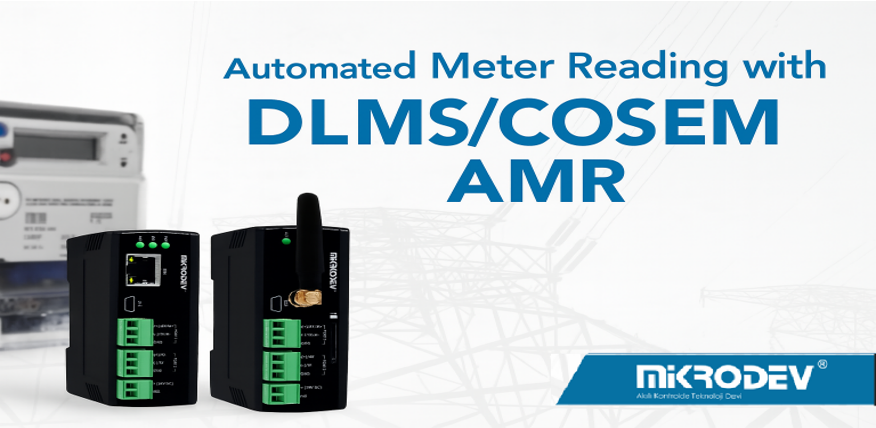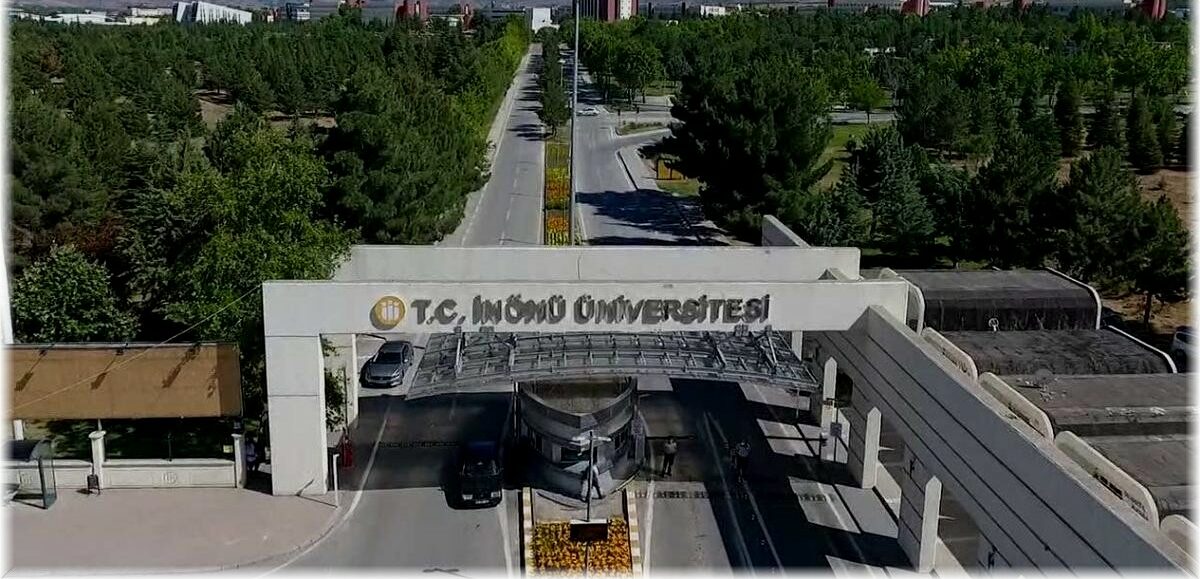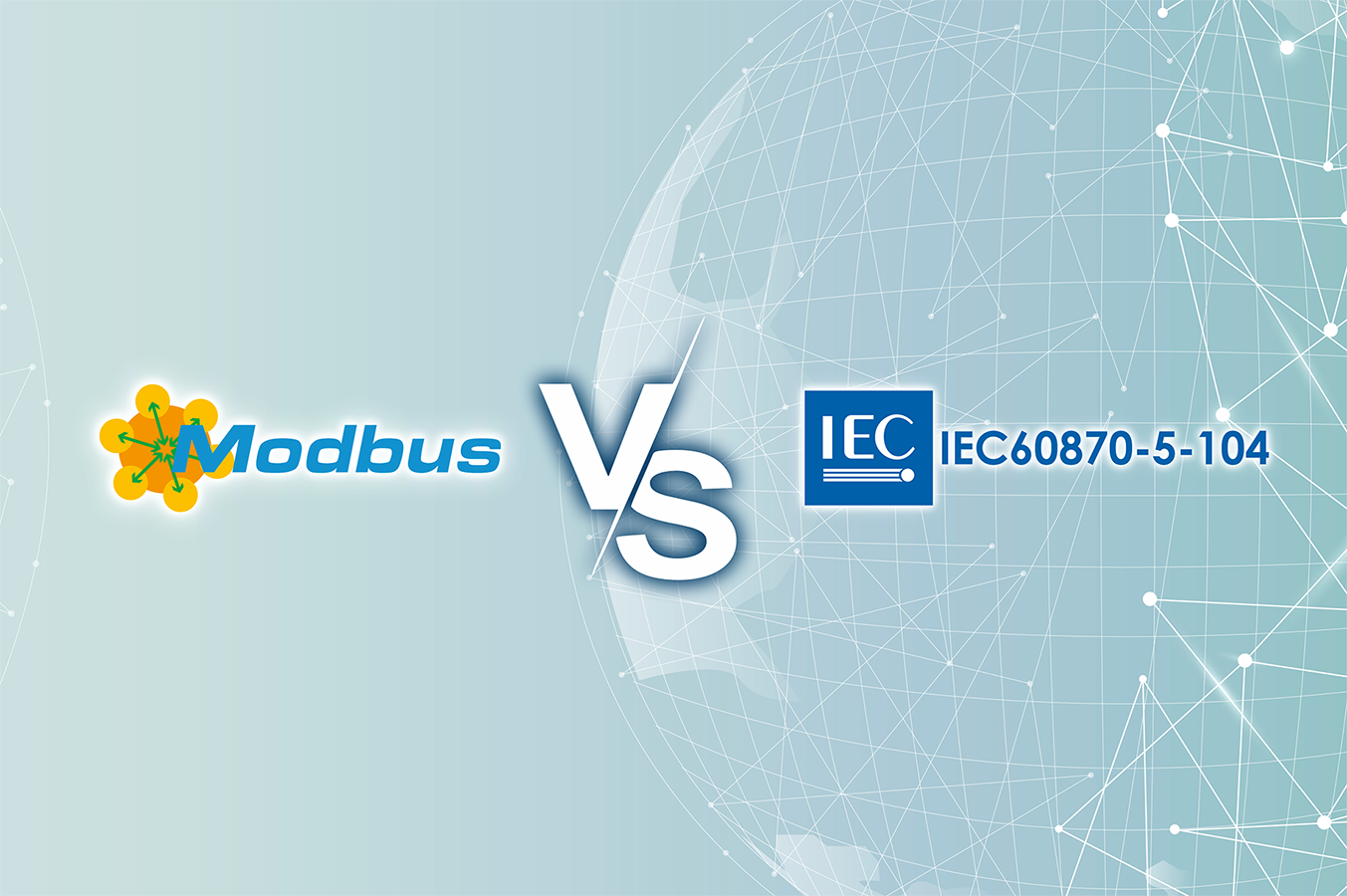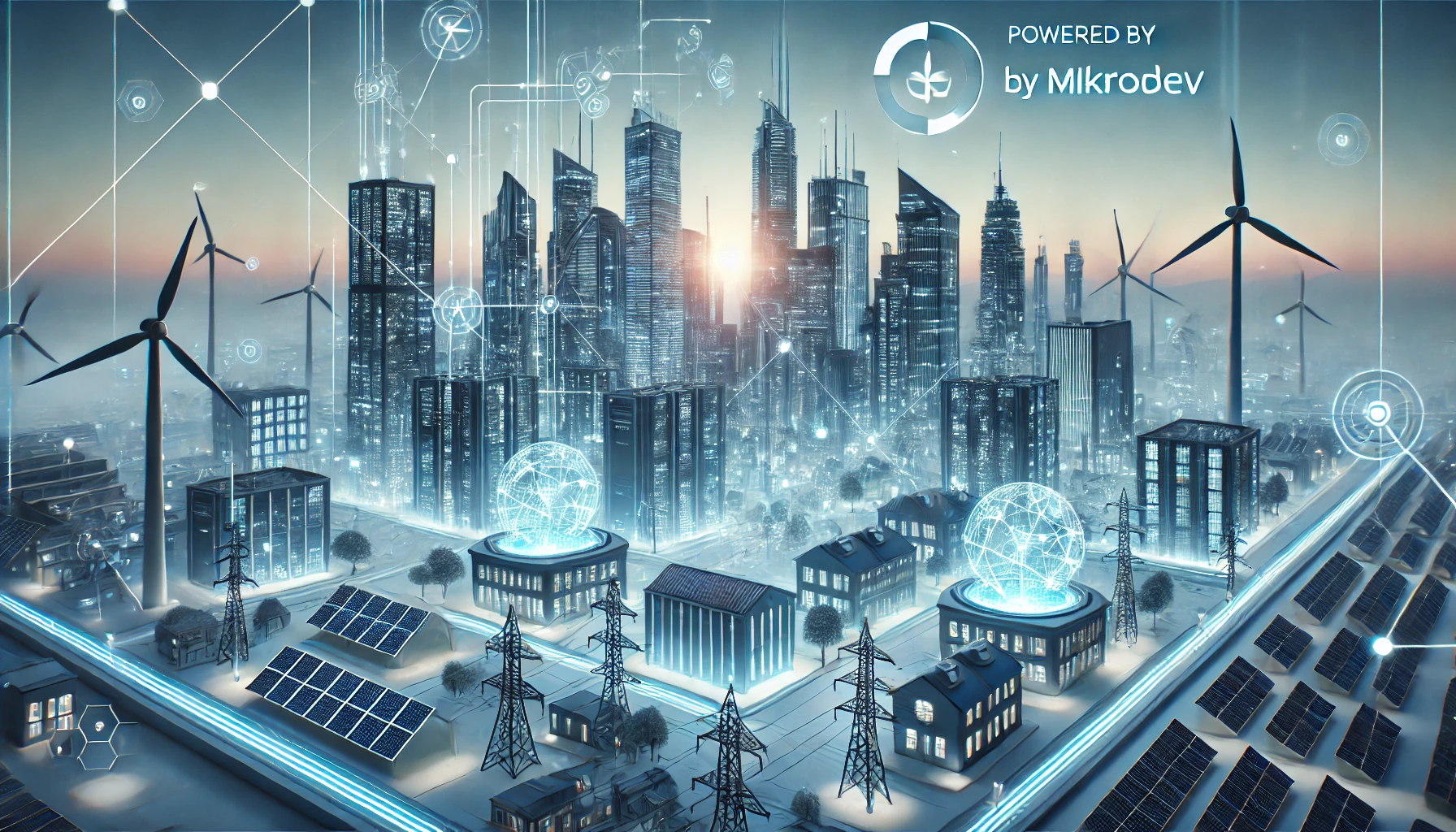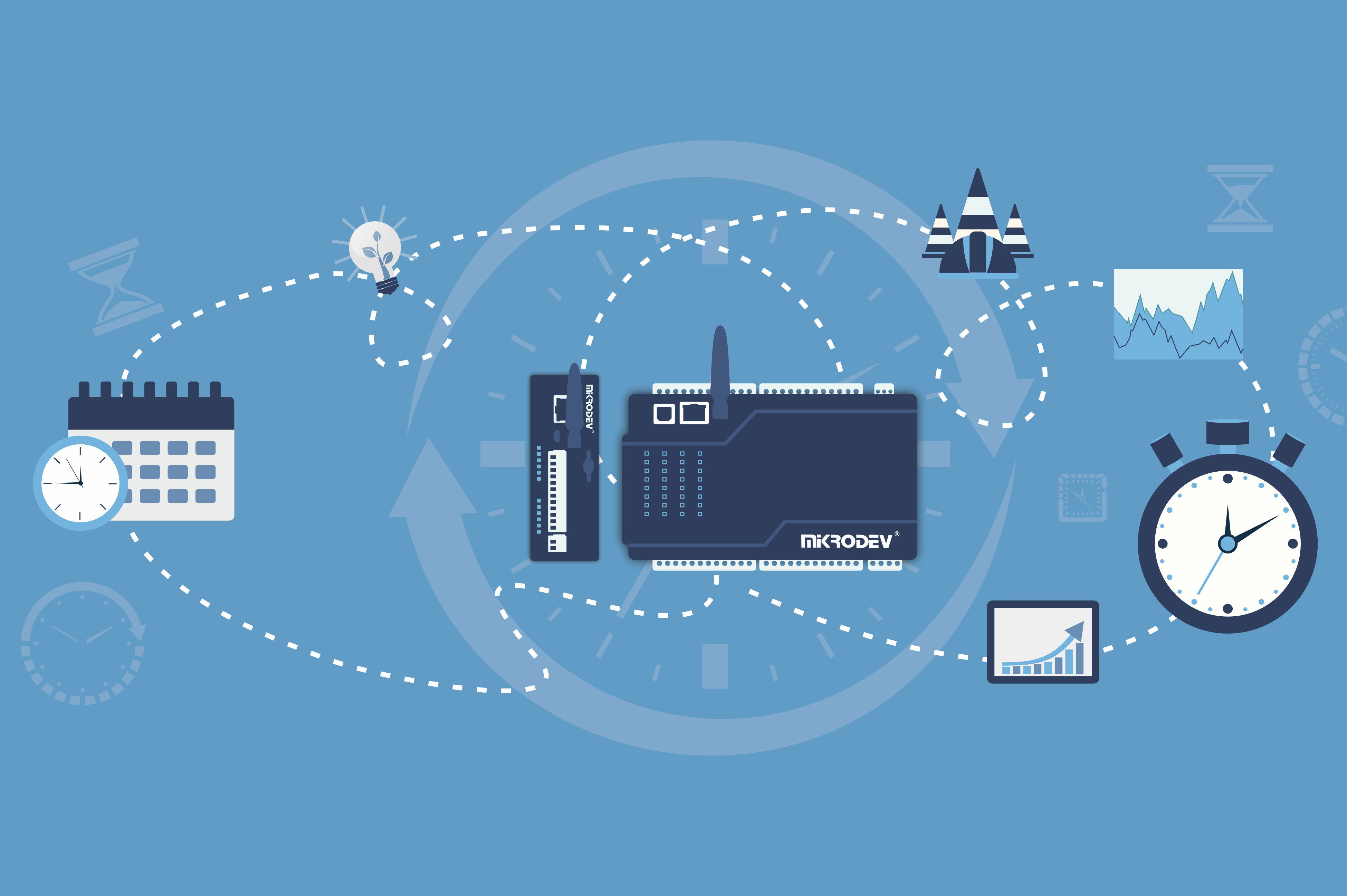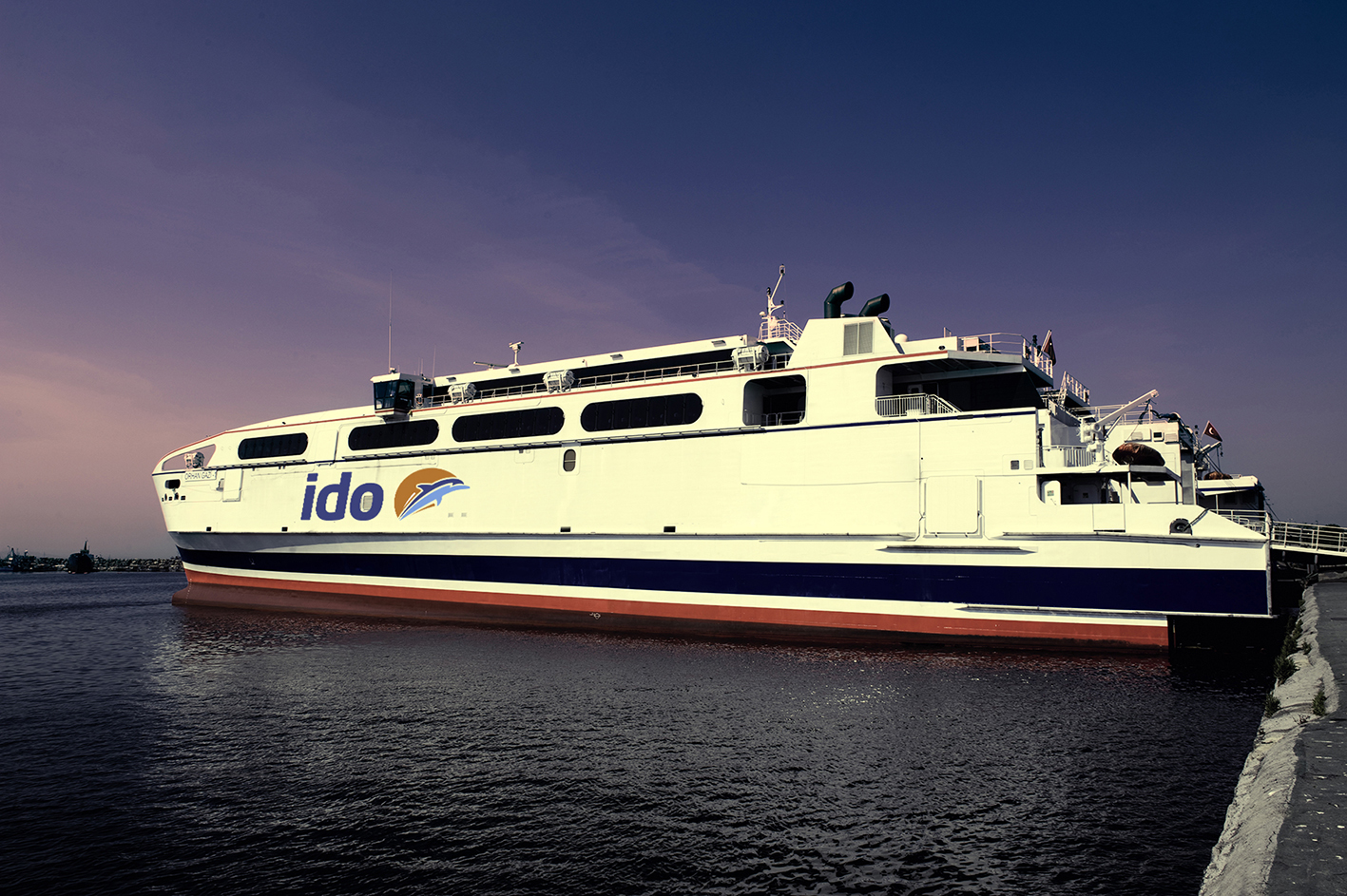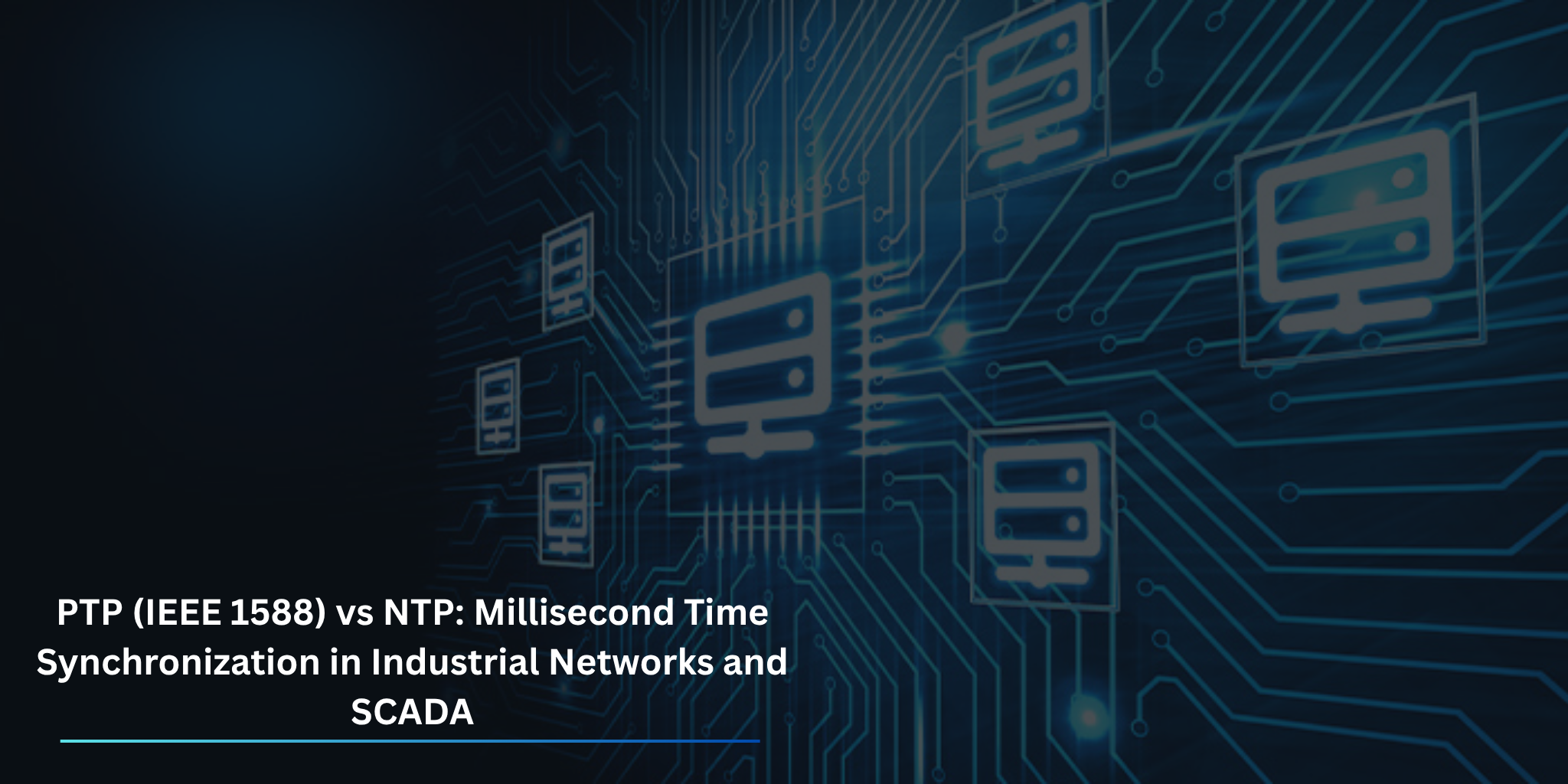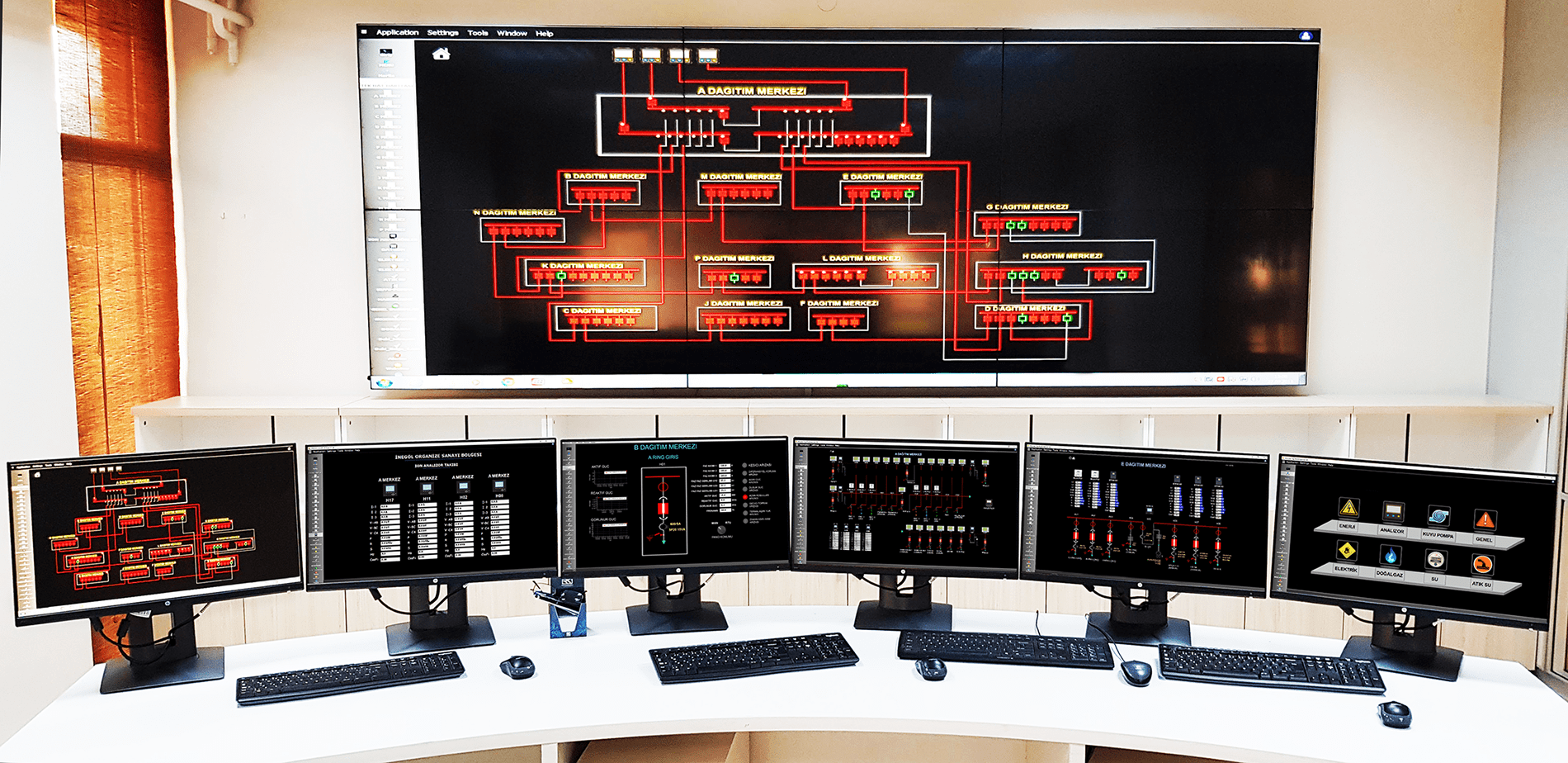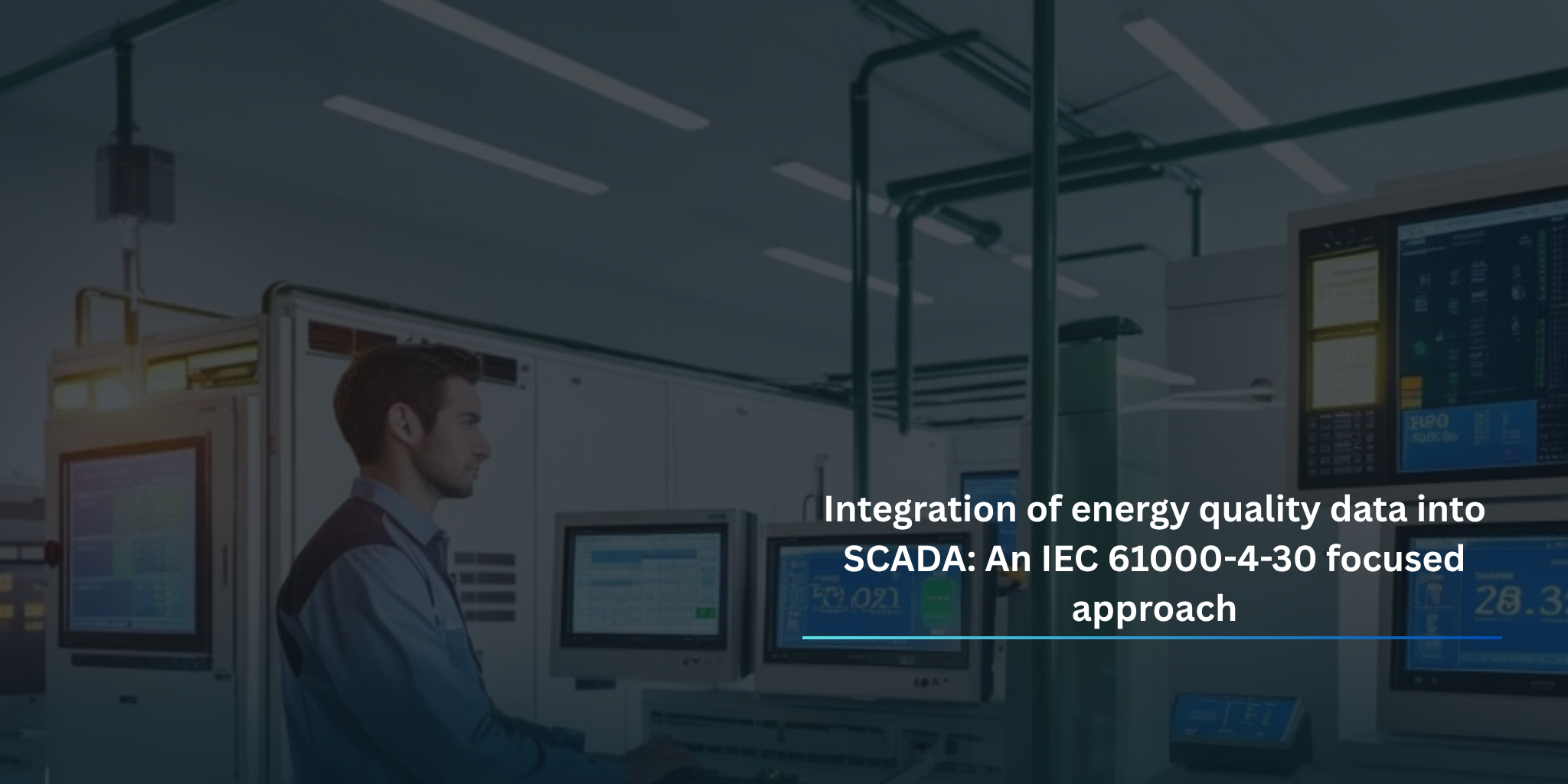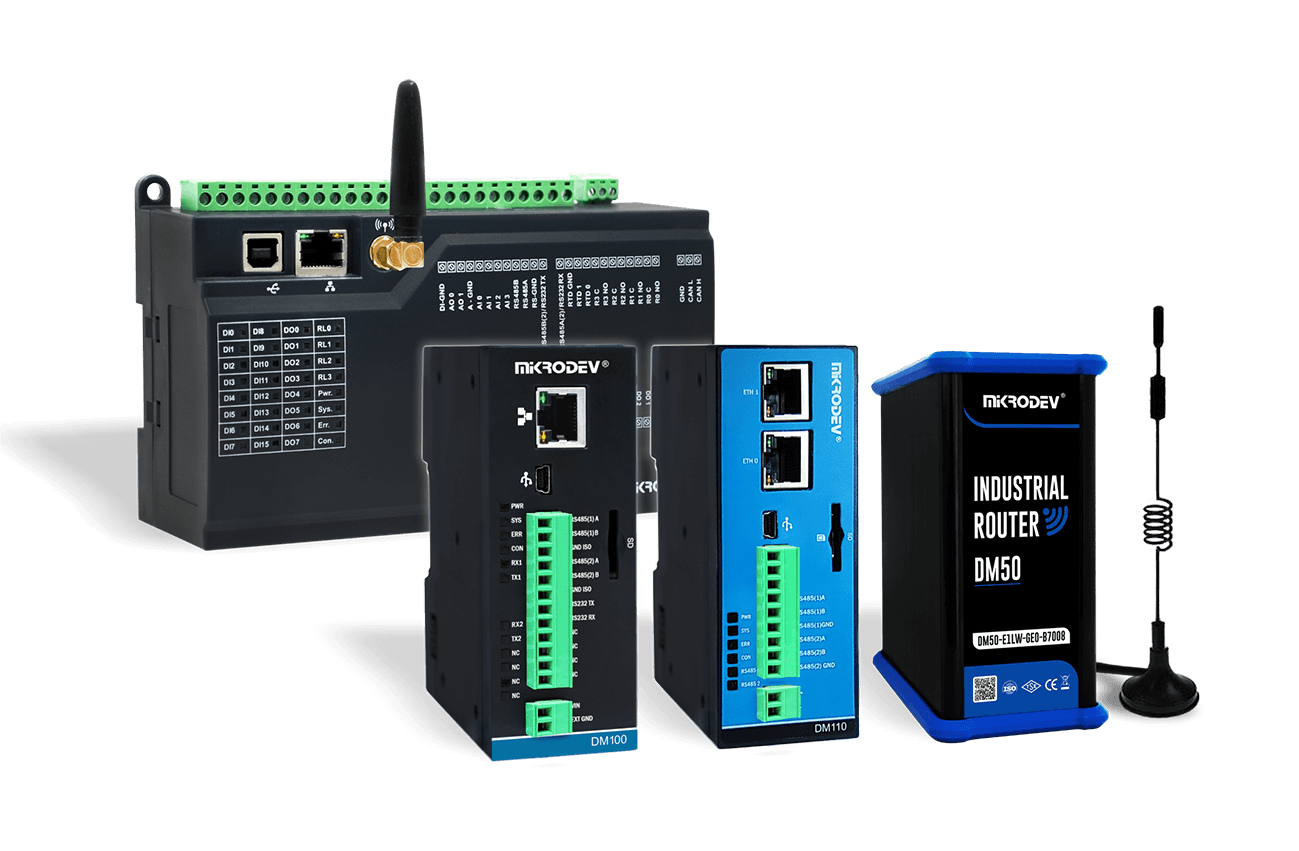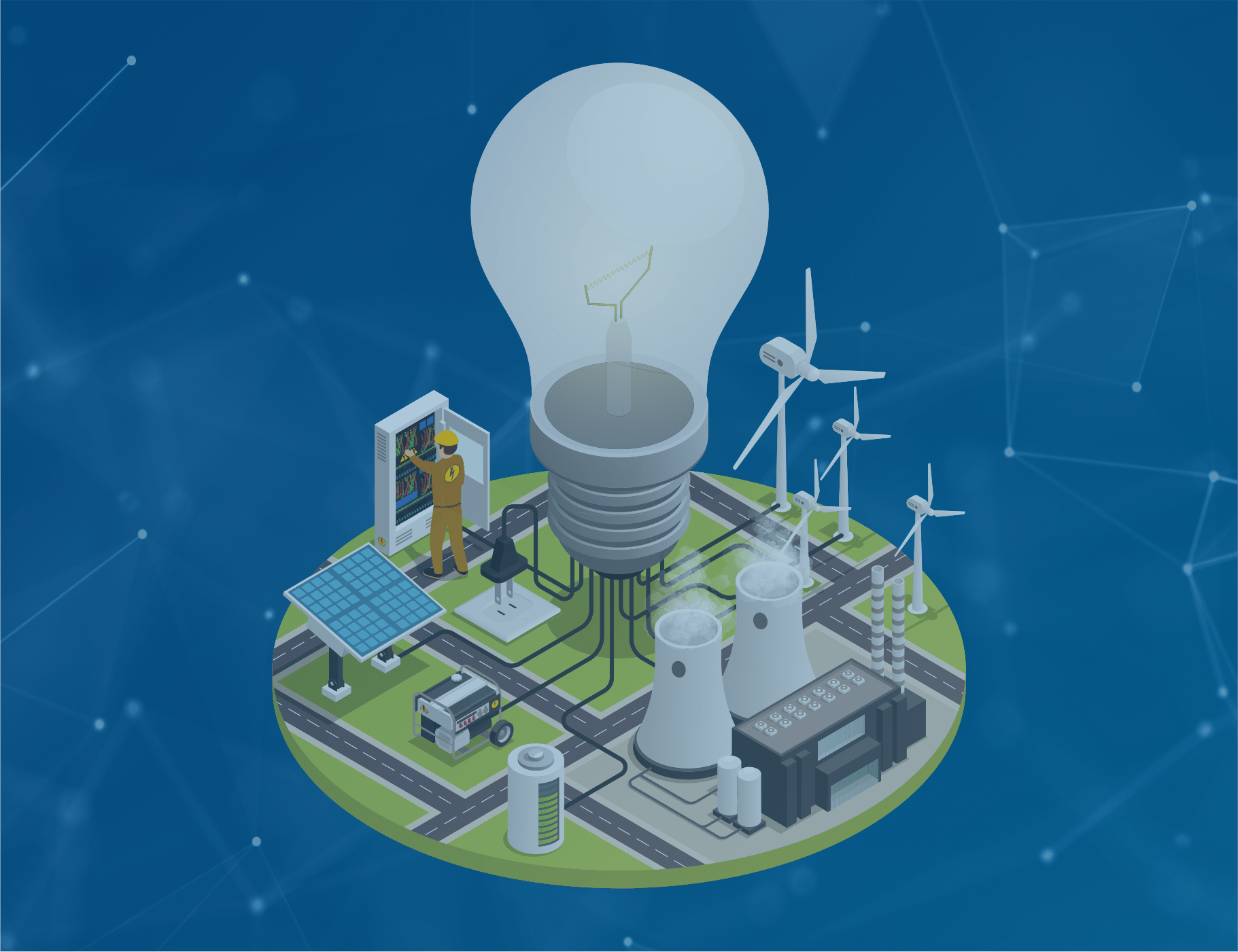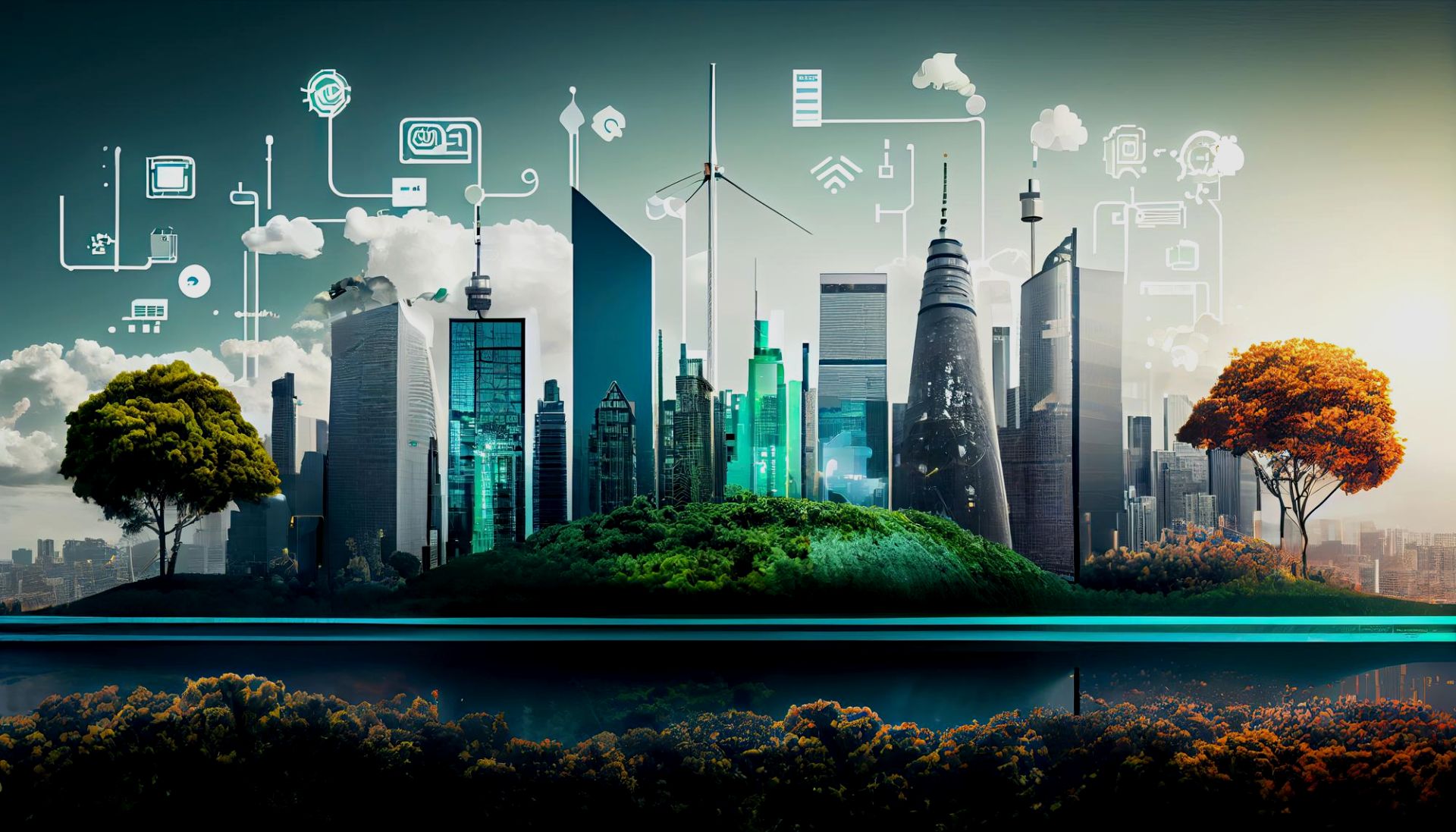Living in an era where a significant portion of the global population resides in large cities and metropolises, these urban hubs are not only concentrations of people but also major contributors to high energy consumption and carbon emissions. In this age, enhancing energy efficiency, transitioning to eco-friendly energy sources, and integrating smart technologies into city life can not only offer economic benefits but also boost environmental sustainability. In this blog post, we will explore the characteristics of smart cities, sustainable energy sources, smart city applications, and technologies, along with a focus on the role of Turkey-based Mikrodev in this transformative journey and some exemplary applications.
Characteristics of Smart Cities and How They Operate
Smart cities use information and communication technologies to enhance urban infrastructure, services, resources, and interaction among citizens. In terms of energy management, they employ smart systems and devices to reduce energy demand, optimize energy resources, increase energy efficiency, and ultimately reduce carbon footprint. Processes like energy production, distribution, consumption, and storage are monitored, managed, and integrated using technologies such as sensors, meters, control centers, smart grids, smart buildings, and smart lighting.
Sustainable Energy Sources for Smart Cities
Sustainable energy sources are defined as renewable, clean, and environmentally friendly energy sources. These include solar energy, wind energy, biomass energy, geothermal energy, and hydropower.
As many of us know, solar energy is an energy source that converts sunlight into electricity or thermal energy. It can be obtained using solar panels or solar power plants. The prices of solar panels have been decreasing in recent years, making solar energy increasingly competitive. Wind energy, on the other hand, is an energy source that harnesses the kinetic energy of the wind to convert it into electricity or mechanical energy. It can be obtained using wind turbines or wind farms. Investments in wind turbines are increasing every year in our country, and the electrical energy produced from wind energy is steadily increasing. According to official data, electricity production from wind increased 570 times in Turkey in 20 years, reaching a capacity of 10,861 megawatts (MW) in 2022.
Hydropower energy, which converts the potential or kinetic energy of water into electrical energy, can be obtained using hydropower plants or micro-hydropower systems. Hydropower energy is a renewable, inexpensive, and reliable energy source that has contributed to efficient water management from the past to the present.
Geothermal energy, another sustainable energy source, is known as the heat energy obtained from the depths of the earth’s hot sources or rocks. It can be obtained using geothermal power plants or geothermal heat pumps. Geothermal energy, being an underground source, is a clean, renewable, and stable energy source unaffected by climatic conditions.
The last type of energy that can be considered in this category is biomass energy, which is mostly invested abroad. Biomass energy is obtained by burning organic materials derived from plant or animal waste or by converting them into biofuels. It can be obtained using biomass energy plants or biogas facilities. Biomass energy is a carbon-neutral energy source that allows the utilization of waste. In this context, it is one of the most emphasized topics globally in terms of sustainability.
According to the latest official data in Turkey, [Biomass Energy Potential Atlas (BEPA)] states that the installed power based on biomass and waste heat energy was 2,172 MW by the end of June 2022, accounting for 2.14% of the total installed power in Turkey.
In advanced countries, one of the regions actively using biomass energy is Finland, where approximately 85% of renewable energy comes from biomass. In Finland, the main application of bioenergy is both direct heating and renewable heating due to the country’s climate and geographical conditions. In the case of Finland, electricity generated from renewable energy accounts for 45% of the country’s total electricity production. Smart city technologies developed in Finland are focused on using these sustainable energy sources more efficiently and actively. (Smart City Solutions From Finland)
In this context, from the perspective of developed countries, it can be said that the electricity and thermal energy obtained from sustainable energy sources are used in cities and smart city applications, and investments in this direction continue to increase.
Solutions that integrate energy obtained from these sustainable sources into smart city technologies will form the backbone of future urbanization and city projects.”
Eager to Catch the Future?
Mikrodev’s RTU devices are in perfect harmony with the smart city concept and play critical roles in sustainable energy management. Mikrodev signature RTUs support smart cities in achieving their energy management and sustainability goals and offer flexible and reliable solutions. Make city infrastructures smarter, more efficient and environmentally friendly with Mikrodev’s qualified RTUs and take your city’s automation to the future!
Smart City Applications: Enhancing Urban Living
Smart city applications comprise projects, services, platforms, and solutions that enable smart cities to achieve their goals. These applications can be developed in various areas such as city management, transportation, health, education, security, communication, construction, heating, environment, and tourism. Common features of smart city applications include meeting citizens’ needs, collecting and analyzing data, providing real-time information, encouraging participation and collaboration, supporting innovation, and optimizing systems for efficient use of energy resources and carbon footprint reduction.
Some examples of smart city applications include:
- Centralized Management Software: Integrating various control systems for lighting, energy, roads, water, and gas under a single software platform for streamlined city management.
- Smart Parking System: Utilizing sensors to detect available parking spaces and guide drivers to the nearest and most suitable parking spot.
- Smart Bike Sharing System: Controlling city bike stations via smartphones, making bike rentals more convenient.
- Smart Waste Management System: Measuring the fill levels of waste containers with sensors, optimizing waste collection routes.
- Smart Lighting System: Adjusting the brightness of streetlights with motion sensors to save energy.
- Smart Traffic Management System: Monitoring traffic flow using technologies like cameras, radar, and GPS, adjusting traffic signals, speed limits, and alternative routes accordingly.
Smart City Technologies: Enablers of Transformation
Smart city technologies are the information and communication technologies that enable the realization of smart city applications. These technologies, comprising hardware, software, and services, perform functions like data collection, transmission, processing, analysis, and visualization. Notable smart city solutions encompass a variety of technologies including centralized management software, smart transportation systems, smart energy management, smart building systems, smart water management, smart waste management, and smart communication management. These technologies, coupled with applications like sensors, data analysis software, remote control units, and security measures, collectively drive the implementation of smart city projects.
A Few Last Words on the Future of Smart Cities
In the perception of all of this data, we can make a few predictions of smart cities. For instance, the smart transformation of technologies used in cities can be realized with the further integration and use of IoT communication terminals. With these devices, more efficient solutions can be produced for issues that directly concern city dwellers, such as traffic flow, energy consumption, and air quality.
In addition, the use of technologies such as artificial intelligence and big data analysis is likely to be very important for the future of smart cities. With the right and efficient integration of these technologies, cities and towns can be better managed and services can be delivered more effectively to citizens and residents. With the development of technology, smart cities, which will develop further, will play an important role in improving people’s quality of life and for a sustainable future.
Examples of Microdev Devices and Smart City Applications
Mikrodev offers innovative solutions for smart city applications with its IoT protocol gateway, PLC, DCS, and SCADA product families with the support of industrial communication protocols.
Mikrodev DSC, PLC, and SCADA devices have been used in many smart city projects and applications in our country and globally. To give a few examples among dozens of sample projects completed with Mikrodev products; Istanbul Metropolitan Municipality Energy Management and Lighting Directorate, Mikrodev PLC, and Gateway products are used in city management by collecting approximately 100,000 data every second throughout the city.
A smart city roof management software system was created by gathering 13 different subsystems in Istanbul under a single roof. In addition, Tekirdağ Water and Sewerage Administration (TESKİ) controls more than 350 stations and Muğla Water and Sewerage Administration (MUSKİ) controls more than 800 stations through Mikrodev RTU300 series remote terminal unit products.
Mikrodev aims to create a sustainable difference in the market with its strong technical infrastructure, innovative vision, flexible solutions, and customer-oriented approach. By undertaking tasks under the mission of Producing Turkey, Mikrodev has taken our country out of full dependence on foreign countries in the field of automation technologies. It is the leading domestic company in Turkey with its ever-growing product range and fully domestic solutions.
